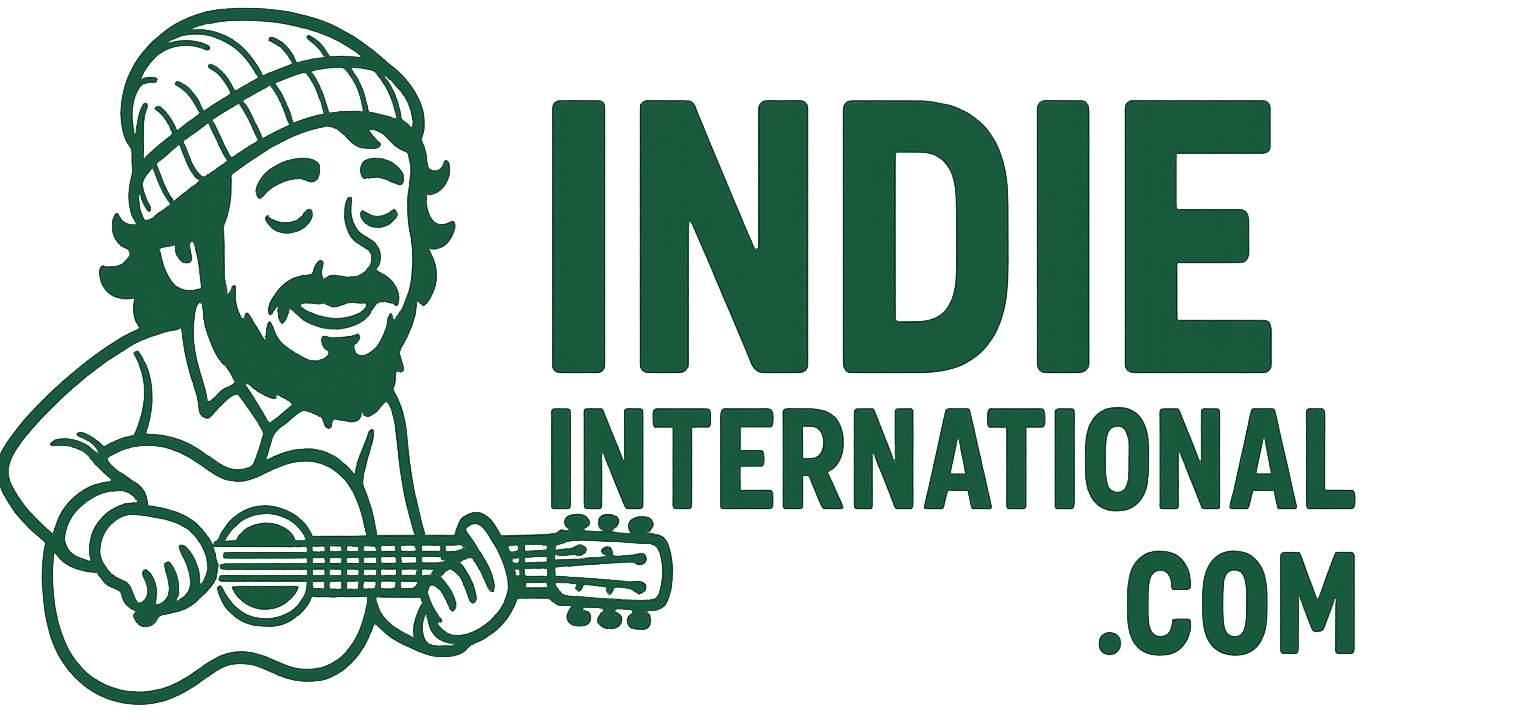The path to making a living as an independent songwriter is both challenging and rewarding. I’ve walked this road and discovered firsthand that success doesn’t come overnight. It requires persistence, business savvy, creativity, and a deep passion for the craft. Being independent means you control your career, but it also means wearing many hats, from writing and recording to marketing and managing finances.
In this article, I’ll share what I’ve learned about how to make a living as an independent songwriter, including practical steps, mindset shifts, and strategies that helped me sustain a career without a big label or publisher behind me.
Diversify Your Income Streams
One of the most important lessons I learned is that relying on just one source of income is risky. Making a living as an independent songwriter means tapping into multiple revenue streams. This diversification helps stabilize income when one area slows down.
Royalties from streaming platforms and digital sales are the most obvious source. But these earnings alone often aren’t enough to cover living expenses, especially for emerging songwriters. I supplement my income through sync licensing, live performances, teaching songwriting workshops, and selling merchandise.
Licensing songs for TV shows, movies, commercials, and video games can be very lucrative. I’ve found that building relationships with music supervisors and placing songs on sync platforms opens doors I didn’t expect. The key is to create songs that fit specific moods or scenes and then pitch them strategically.
Teaching songwriting, either online or in person, has also been a rewarding way to earn money while sharing my passion. It’s surprising how many people want to learn the craft, and I get to connect with fellow music lovers in a meaningful way.
Build a Strong Online Presence
Making a living as an independent songwriter today almost demands a strong online presence. I’ve learned that you can’t rely solely on traditional industry gatekeepers. Platforms like YouTube, TikTok, Instagram, and Spotify give you direct access to your audience.
Creating engaging content regularly helps me build a community around my music. Whether it’s behind-the-scenes footage, songwriting tips, or acoustic sessions, sharing authentic moments keeps people interested.
I focus on growing my mailing list because it allows me to connect more personally with fans. Email marketing has been invaluable for announcing new releases, selling songs, or promoting live shows without paying high fees to social media algorithms.
Additionally, distributing my music through digital aggregators puts my songs on all major streaming platforms worldwide. This accessibility increases my chances of being discovered and earning royalties.
Network Actively and Build Relationships
The music industry is still very much a people business. I’ve found that networking with other songwriters, producers, artists, and industry professionals opens up opportunities I wouldn’t find otherwise.
Attending songwriting workshops, music conferences, and local open mics helped me meet like-minded creatives. These connections often lead to co-writing sessions, referrals, or collaborations that boost my career.
I also make a point to reach out to music supervisors, playlist curators, and publishers. Even as an independent, building relationships with professionals who can help place or promote my songs has been crucial.
Social media has made it easier to network globally. A thoughtful direct message or comment can spark a conversation that leads to meaningful partnerships.
Master the Business Side
Making a living as an independent songwriter means treating your craft like a business. I had to learn about copyrights, publishing, royalties, contracts, and taxes to protect my work and income.
Registering my songs with performing rights organizations ensures I get paid for radio play, streaming, and public performances. It’s a simple step that too many overlook.
I also track my income and expenses carefully, often using accounting software designed for creatives. This helps me budget, file taxes accurately, and identify where I can invest more wisely.
Contracts are another critical area. Whenever I co-write, license songs, or work with collaborators, having clear agreements in place prevents disputes and ensures everyone benefits fairly.
Keep Writing and Improving Your Craft
Sustaining a career means staying productive and continually honing your skills. I dedicate regular time to writing new songs and experimenting with different styles.
Even when I don’t feel inspired, pushing through creative blocks often leads to unexpected breakthroughs. Making a living as an independent songwriter demands discipline just as much as creativity.
I also seek feedback from trusted peers and mentors. Honest critique helps me grow and produce songs that connect better with listeners.
Taking courses on songwriting, music production, or marketing helps me stay current in an ever-evolving industry.
Understand Your Value and Set Realistic Goals
One challenge I faced was recognizing my worth as an independent songwriter. It’s easy to undervalue your work or accept low-paying gigs that don’t sustain you.
I’ve learned to set clear goals for income, song placements, and fan growth. This helps me evaluate opportunities and say no to deals that don’t align with my vision or financial needs.
Pricing your songs, services, or teaching sessions fairly is part of that. When I started valuing my time and creativity appropriately, my income became more consistent.
Use Technology to Your Advantage
Technology has been a game-changer for me in making a living as an independent songwriter. Affordable home recording setups allow me to produce quality demos without expensive studio time.
Digital distribution platforms make it easy to release music globally. I use analytics tools to track listener data and tailor my marketing efforts.
Online collaboration tools let me write and produce songs with co-writers remotely. This expanded my network and creative possibilities significantly.
There are also sync licensing platforms where independent songwriters can submit their music directly to potential clients. I recommend exploring these to supplement traditional pitching.
Stay Resilient and Adaptable
The music industry is unpredictable, and making a living as an independent songwriter requires resilience. I’ve faced rejection, slow periods, and unexpected challenges, but staying adaptable helped me keep going.
Sometimes that meant shifting my focus from one revenue stream to another or trying new promotional strategies. Being open to change and continually learning kept my career moving forward.
Most importantly, I remind myself why I started writing songs in the first place, the passion and joy it brings. That keeps me motivated even when the business side feels overwhelming.
Collaborate to Expand Opportunities
Collaborating with other songwriters, producers, and artists has been invaluable in expanding my reach and creative horizons. Co-writing often leads to better songs, and sharing connections opens new doors.
Working with others also distributes the workload, making it easier to manage promotion, pitching, and administration.
I always make sure co-writing agreements are clear about splits and rights to avoid confusion later.
Monetize Live Performances and Virtual Shows
Performing live has traditionally been a major income source for songwriters. Even as an independent, I found that gigs at local venues, festivals, or private events contribute significantly to my earnings.
In recent years, virtual concerts and live streams have become effective ways to reach fans and generate income through ticket sales or donations.
Building a loyal audience willing to attend shows or engage online requires consistency and quality performances.
Protect Your Mental Health and Well-being
Making a living as an independent songwriter can be stressful. Managing finances, creative pressures, and marketing takes a toll. I’ve learned the importance of setting boundaries, taking breaks, and seeking support when needed.
Maintaining mental and physical health is essential to sustaining creativity and business success.
Finding a balance between work and rest helps me stay productive without burning out.
Explore Alternative Revenue Sources
Beyond traditional songwriting income, I’ve explored alternatives like Patreon, crowdfunding, and selling exclusive content to fans. These models allow direct support from listeners who value my work.
Some songwriters also create instructional content or write for music libraries specializing in production or background music.
Diversifying in this way adds stability and new creative outlets.
Keep Track of Your Achievements
Documenting successes like placements, awards, or positive reviews helps when pitching songs or negotiating deals. I maintain a portfolio and update it regularly.
This record builds credibility and motivates me during tougher times.
Sharing milestones on social media also engages fans and attracts industry attention.
Conclusion
Making a living as an independent songwriter is a multifaceted journey. It requires creativity, business skills, resilience, and ongoing effort. From diversifying income streams and building a strong online presence to mastering the business side and collaborating effectively, every piece matters.
I’ve learned that being independent means both freedom and responsibility. The path isn’t easy, but with passion and persistence, it’s possible to sustain a rewarding career on your own terms.
If you’re committed to your craft and willing to embrace all aspects of the music business, making a living as an independent songwriter can be not only achievable but deeply fulfilling.

